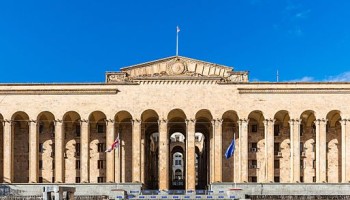Members of Open Government, a Russian government council established to promote transparency, failed to show up at a crucial meeting on the matter Monday.
The new law was proposed after anti-corruption campaigners, led by opposition activist Alexei Navalny, gathered the required 100,000 petition signatures to mandate official consideration. That threshold was reached on Dec. 9, 2014.
The proposed law would introduce a new offence, “illicit enrichment”, based on Article 20 of the United Nations Convention Against Corruption (UNCAC).
According to the Moscow Times, in March 2013 the Communist Party had previously gathered 115,000 signatures in support of the Article 20 law, but it failed to pass through the lower house of Parliament.
Monday’s meeting was to have been a joint session involving 35 members of the Open Government council, and representatives from Navalny’s organization, the Fund to Fight Corruption (FBK). Navalny could not attend because he is currently under house arrest. According to the BBC Russian Service, only 14 members of Open Government attended, too few to conduct a vote. No follow-up meeting has been announced.
Elena Panfilova, the director of Transparency International Russia, said on Twitter that the council supports the general idea of the initiative, but does not agree with proposed wording and needs time to discuss it.
Open Government, established in Russia in 2012, was originally linked to the Open Government Partnership (OGP), a global initiative that committed its partner countries to transparency and anti-corruption practices.
But while Russia submitted a letter of intent to join the partnership in April 2012, it withdrew in May 2013, separating its Open Government council from the partnership. The council still exists as part of the Russian government, tasked with reviewing anti-corruption proposals and draft laws before they go to Parliament.
Sergey Ivanov, chief of staff to President Vladimir Putin, previously denied a need for such legislation, claiming that Russia had fully ratified all articles of the UNCAC, Interfax reports. Ivanov said it was a “myth” that Russia had not ratified Article 20 of the Convention.






